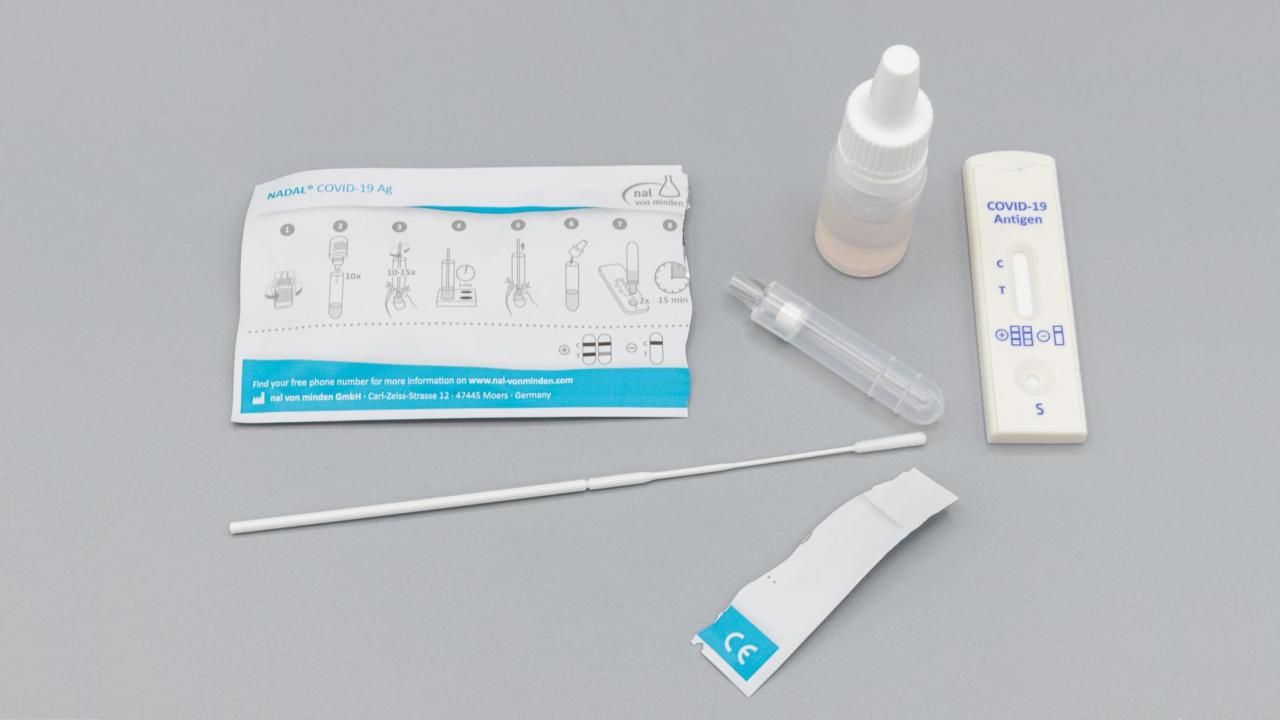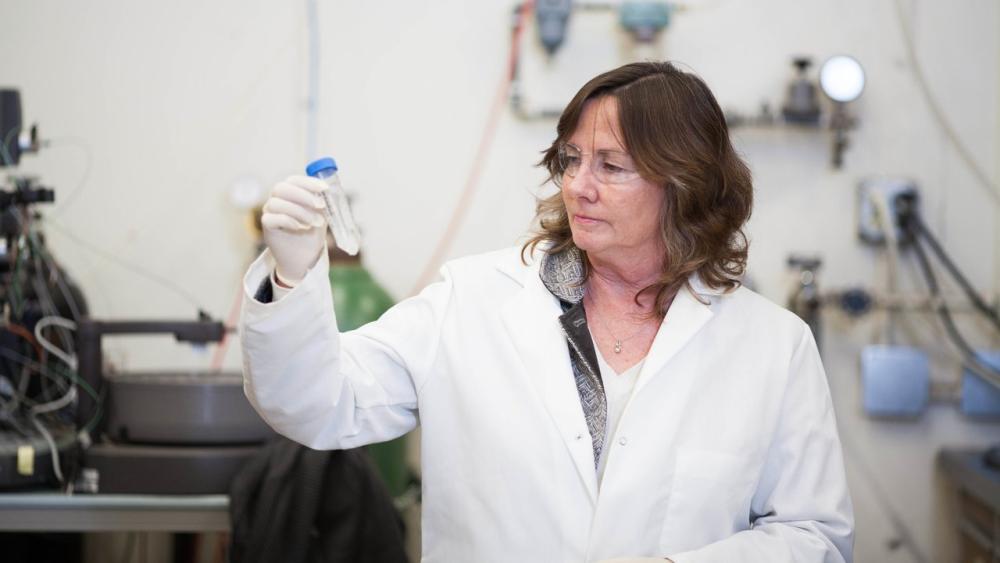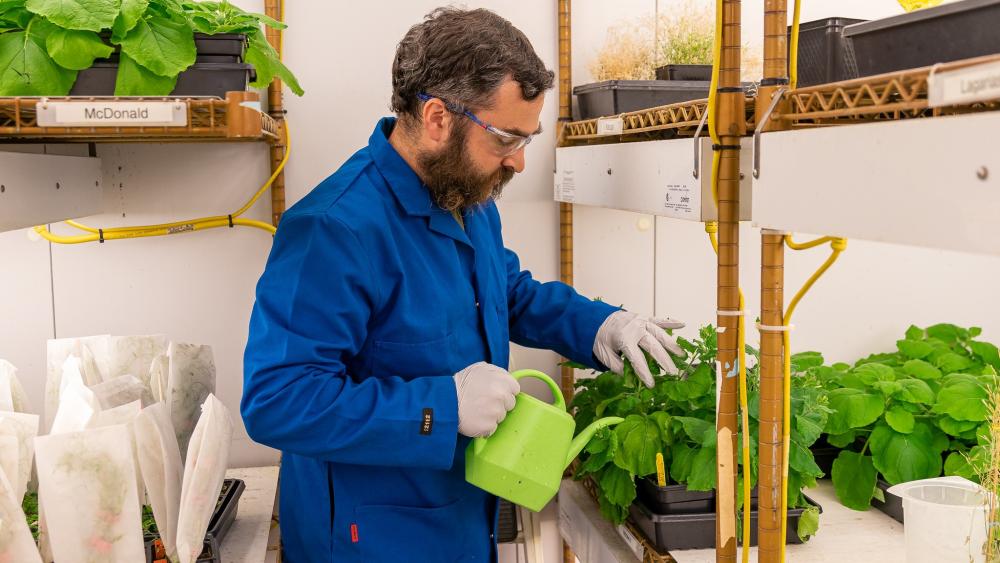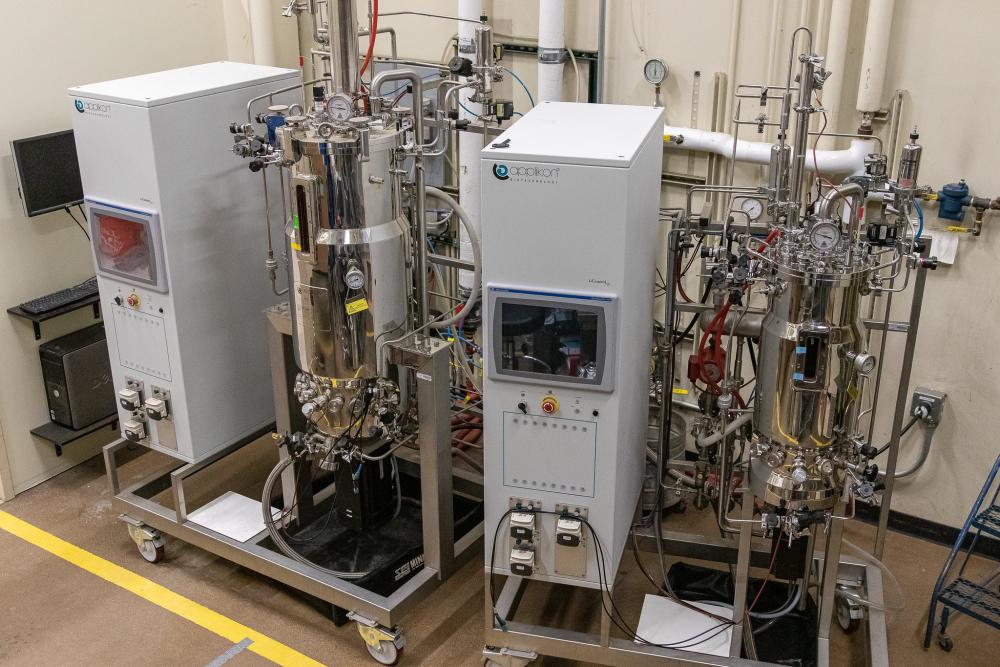
UC Davis, Collaborators Receive $3.9M to Study Alternative COVID-19 Antigen Production
Rapid serological test kits have become an important tool in fighting the ongoing COVID-19 pandemic, but with increased demand and a growing number of SARS-CoV-2 variants, producers need to keep up.
These tests use proteins known as antigens, which bind to antibodies in samples. Antigens can indicate whether a person has developed COVID-specific antibodies, either from a prior infection or as a result of vaccination. Making these antigens faster, cheaper and in a way that ensures there’s no single points of failure in the supply chain is critical to making these tests part of the ongoing pandemic response.
With a new two-year, $3.97M project funded by the National Institute of Standards and Technologies (NIST) through the Bioindustrial Manufacturing and Design Ecosystem (BioMADE), Chemical Engineering Distinguished Professor Karen McDonald and her team of collaborators will explore the viability of a range of biomanufacturing technologies to produce these antigens.

“It is an exciting project and very timely,” said McDonald. “If we can use alternative production systems to make these antigens, that helps relieve some of the supply chain issues because it gives you more options than if you focus your production method for some of these key diagnostic reagents on just one approach.”
Comparing Production Methods
Biomanufacturing turns cells found in plants, animals, fungi or bacteria into tiny factories to produce antigens and other beneficial products. Though the cells are trained to make products for the biological system they’re a part of, they often have the basic machinery required to make other products. The trick is giving them the instructions to do this through genetic engineering or by using genetically-modified viruses to highjack their machinery to make these products.
With the project, researchers at six universities across the country—UC Davis, the University of Texas – Austin, Johns Hopkins University, the University of Georgia, Boston University and Rensselaer Polytechnic Institute—will explore the viability of producing antigens using cultured cells from six different systems: two plants, a mammal, a bacterium, a yeast and a filamentous fungus.
For each method, they will compare how much antigen can be made, the antigen’s ability to bind to target antibodies, how easily can it be purified from other proteins that the host cell might have, and how easily can it be scaled up. The team will also develop techno-economic models for the most promising production systems to predict and compare manufacturing costs at scale.

An important aspect of this is studying sugars that “decorate” the antigens. Each biological system adds a unique set of sugars onto the proteins during the production process, which can impact the antigen’s structure and its ability to recognize a COVID antibody.
“Most production technologies have advantages and disadvantages,” explained McDonald. “Some might be faster, but might yield lower amounts or have more complicated purification strategies, or might lead to different qualities of the product. Part of the goal of the project is to assess the advantages and challenges with each of the approaches.”
Leading a Collaboration
UC Davis is the lead institution on the project and it features collaboration across three departments. In chemical engineering, McDonald and long-time collaborator Somen Nandi’s lab will produce antigens in tobacco plants, Assistant Professor Priya Shah’s group will test a mammalian cell production system and Professor Roland Faller’s group will run molecular dynamics simulations to design “ideal” antigens that will be most effective in binding to their targets.
In the Department of Chemistry, Carlito Lebrilla and Xi Chen will study how antigens are decorated with sugars, how they impact function and how they can be modified. Justin Siegel will design the enzymes that are used in the modification of these sugars. Finally, in the Department of Plant Sciences, Professor Abhaya Dandekar will look at producing antigens in walnut embryos.

The project is funded through BioMADE, a Department of Defense (DoD)-funded, multi-institution center focused on developing sustainable and large-scale bioindustrial manufacturing technology. The center gives the team an extensive network of collaborators and industry partners to share their research with.
“Having this project through BioMADE will give us a nice forum to communicate what we’re doing to a broad range of institutions in industry and academia,” said McDonald.
McDonald is most excited about the opportunity to learn, not just about what’s possible with bioindustrial manufacturing, but also what her colleagues are working on and how they can combine their knowledge to change the world. Recombinant antigens are not only important for serological tests, but they can also serve as targets for subunit vaccines and are important for designing and testing antibodies used in rapid antigen test kits. Developing these distributed platform technologies will also help fight future pandemics.
“It’s really team science,” she said. “I hope it fosters more research collaborations, not only within our UC Davis team, but with our other university collaborators as well because of the diverse and complementary expertise this project has brought together.”
